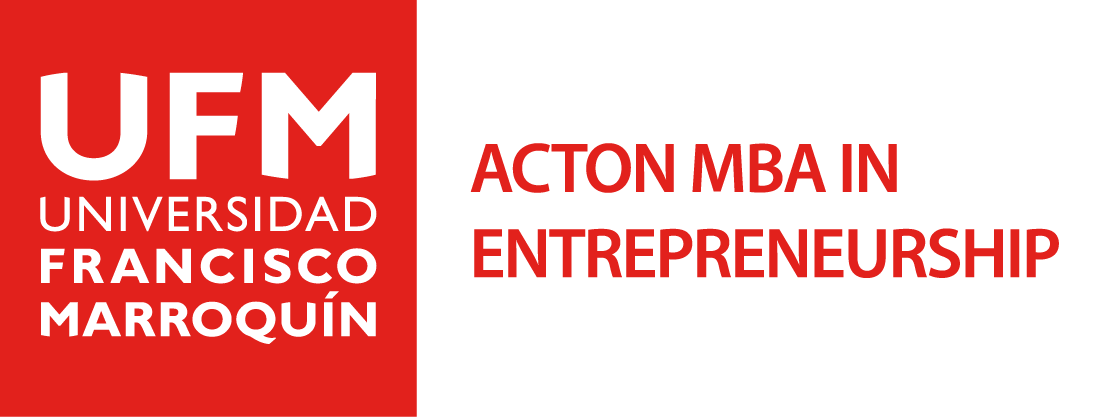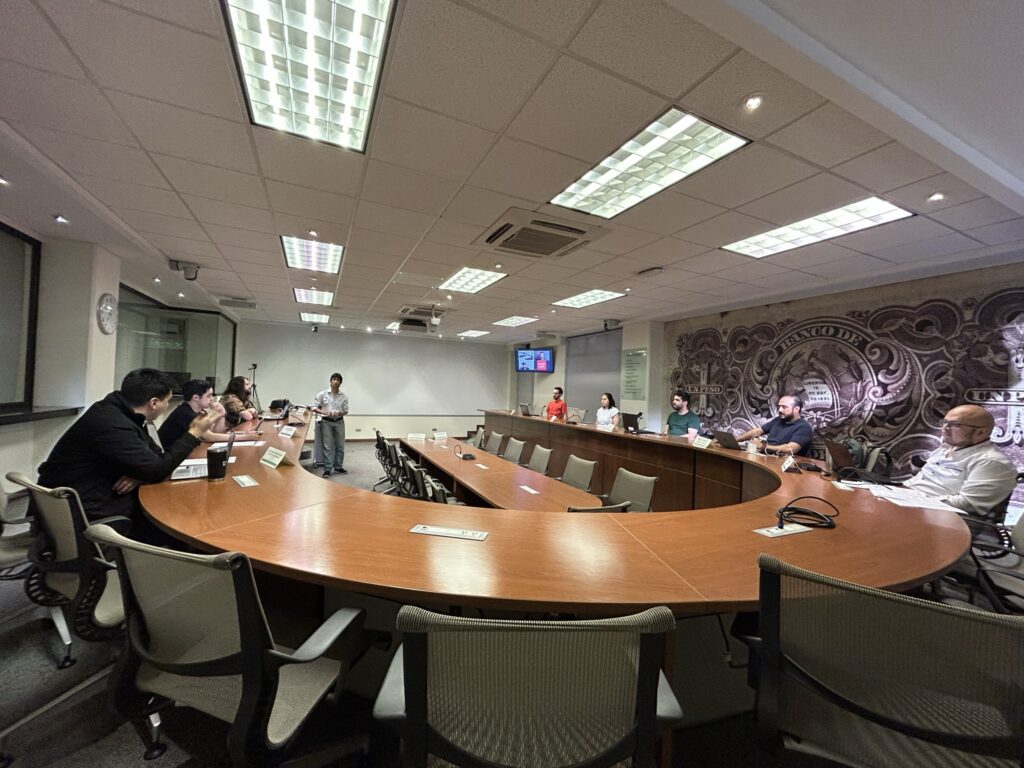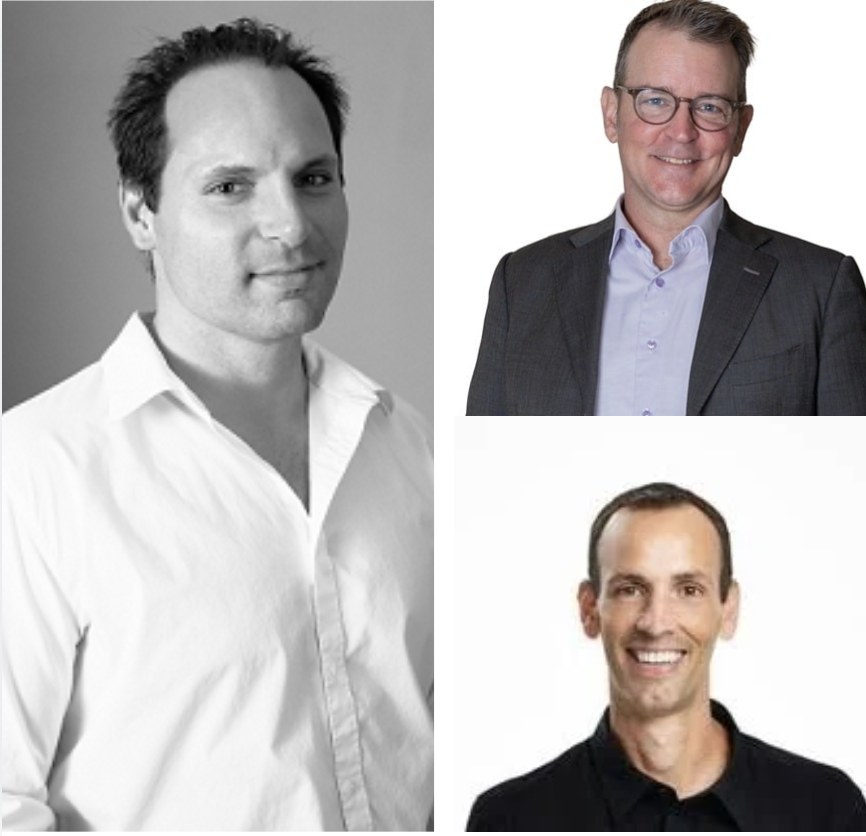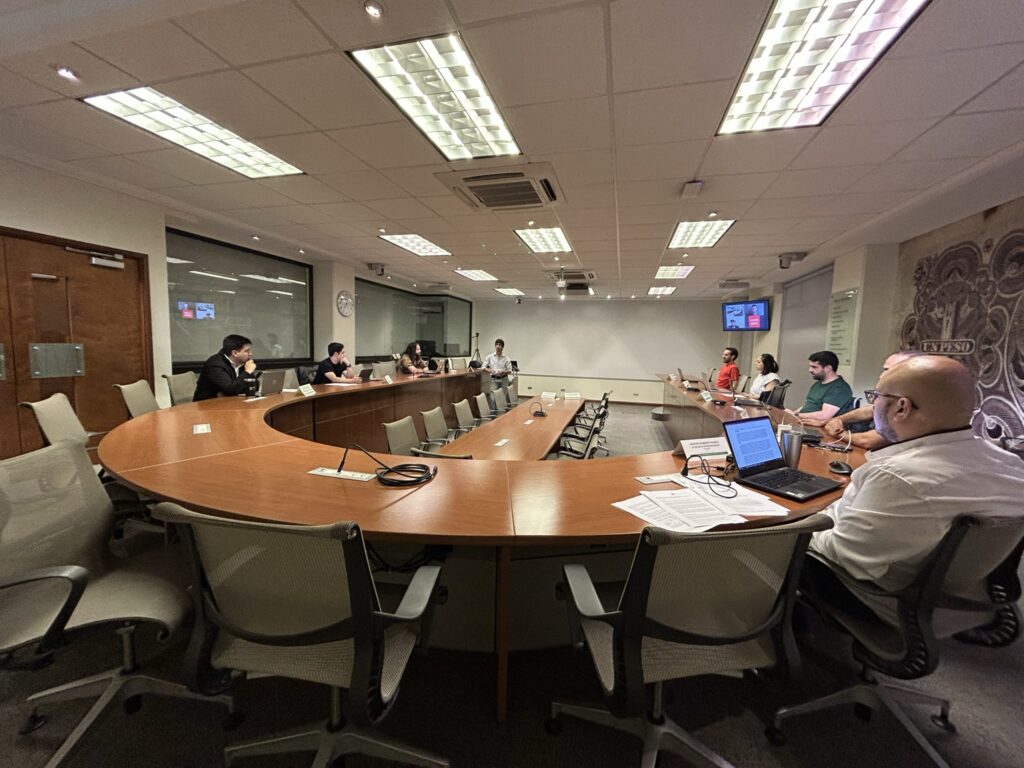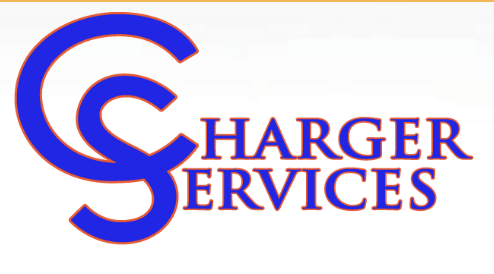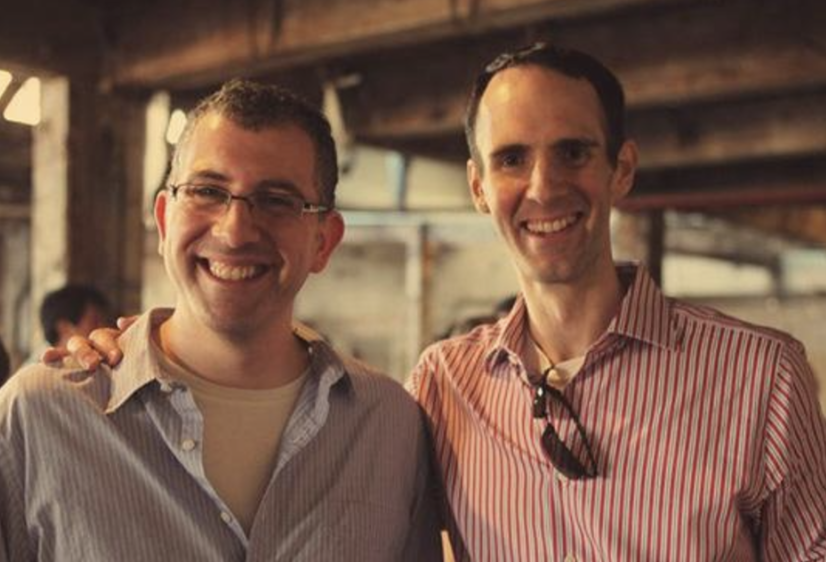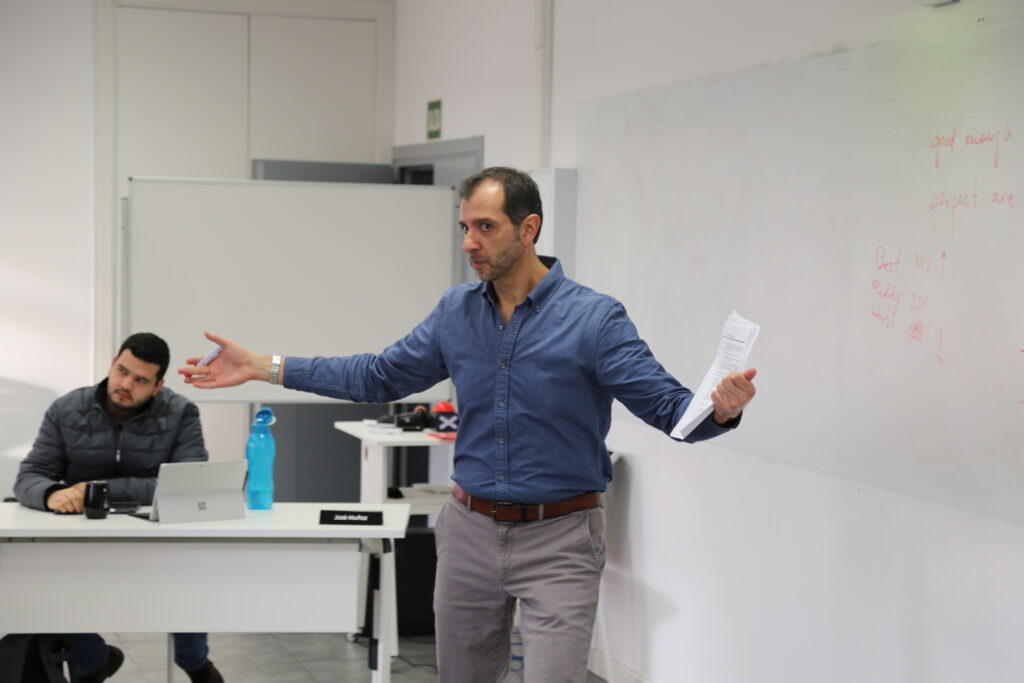Alumni Voices: Technology Careers After Acton
OCTOBER 6, 2014
“On a more tactical level, the Acton education has taught me to periodically ask questions about the business and industry my job is in and what I am learning from it.”
Technology goes hand-in-hand with entrepreneurship and business development, especially in Austin. At Acton many of our new students arrive with undergraduate degrees in the computer sciences and, after graduating, even more pursue opportunities in technology fields.
They tell us that Acton’s fast and demanding pace, high intensity, competitiveness, and focus on understanding what the customer really needs serves them well once they graduate from our classroom.
We recently caught up with three alumni in influential and leadership roles at technology firms, ranging from software start-ups to a Fortune 100 company. They shared some of their own Acton experiences, their motivations for choosing the program, and offered advice for others interested in pursuing a career in technology.
The Alumni
Ben Allen (’07) is director of Business Transformation at AMD and previously served on the company as director of Global Business Development, where he negotiated the use of AMD chips in Sony’s recently announced PlayStation4 game console. In 2009, Ben was awarded a Gaming Tech Innovation Award from the Austin Business Journal for leading the development of entrepreneurial simulation games in his role as director of Acton Publishing. He has completed Acton’s teacher training program and has taught in the Acton classroom. He also holds a bachelor of life sciences with an emphasis in Construction Engineering from Iowa State University.
Bharath Sundararaman (’09) is program director at E2Open in Dallas, Texas, where he leads teams selling supply chain services and delivering implementations at large enterprise customers that earn more than US$100 million annually. He’s also developing his personal assessment expertise and is certified in administering the Myers Briggs Type Indicator, the most widely used personality instrument in the world. He holds a bachelor of science in Mechanical Engineering from B.A.T. University in Maharashtra, India, and a master of science in Industrial Technology from the University of Arizona in Tucson.
Nelson Chau (’10) is chief operations officer at Allogy Interactive, a software company offering a software creation tool that lets teachers and students create and distribute their own mobile apps for both Android and iOS platforms. At Allogy, Nelson manages a team of software developers, creative directors, and editors in the development of products targeting both education and health. Before he attended Acton, Nelson earned a bachelor of computer engineering as well as a master’s in Engineering Management from the University of Texas at Austin.
On enrolling at Acton . . .
Nelson
I dreamed of starting my very own technology company someday. I quickly realized that if I were to run an actual business, I wanted to learn practical business skills and life experiences from real entrepreneurs. After discovering that Acton’s teachers were comprised of successful serial entrepreneurs who all had an obsession for teaching and making a difference in people’s lives, I was hooked. Visiting the school and sitting in on a class discussion sealed the deal in the end. I literally could not write fast enough to capture all the lessons learned.
Bharath
I was in Dallas and not feeling challenged enough with my job at a big technology company. Our family had also started a technical recruiting business on the side, and we found that, despite our desires and efforts, it was a real struggle. All this set me on a path of wanting to take greater control of my own life. I thought an MBA might be the solution to my problems and stumbled across Acton by serendipity. It was the only program I applied to. I think I ended up choosing it for three main reasons: 1) it offered experiential learning about business combined with a focus on identifying a life of meaning; 2) it was taught by teachers who run their own businesses and are held accountable for their performance in class; and 3) I wanted to find out if I could survive the program’s intense 100-hour-plus weeks successfully. During the program, I was not very sure about my path after Acton and a career in technology was definitely not my top priority.
Ben
The compressed time-to-degree was key, as was the Socratic teaching method. I’m a big believer in using case studies to learn from real-life situations, and Acton delivered that.
On their greatest challenge in the Acton classroom . . .
Bharath
My greatest challenge was managing my own time and energy. I tend to have both perfectionism and procrastination—not a recommended combination for this program. Some alumni, classmates, mentors, and teachers served as inspirations and supported me through the program. However, in the end, it was I who had to put in the effort and live with the outcome.
Ben
The greatest challenge at Acton is simply keeping up. Doing the work, day in and day out. The cognitive load is immense.
Nelson
I thought that I could breeze through the classes with my analytical skills. I was wrong. What I didn’t realize was how difficult the assignments would be, especially when we had to consider what the numbers on our spreadsheets meant in terms of real implications to real people. Doing the analysis to cut costs on a spreadsheet to make company valuations look more attractive was relatively easy. What was incredibly difficult was being randomly selected to role play exactly what the numbers in my spreadsheet suggested. I’ll never forget having to look somebody in the eye and explain why I had decided to cut costs in their department.
On their most valuable experience at Acton . . .
Ben
My most valuable experience came in learning to interact at the speed and level that Acton teaches. Being smart isn’t enough. Working hard isn’t enough. You still need to listen actively to others and fully engage in the present issue—much like life.
Bharath
The most valuable experience at Acton was that, by exploring so many case studies, I learned how extremely hard it can be to lead an entrepreneur’s life and there are no assurances that one will come out successful at the end. Also, the interviews with people I respect that I did as part of the Life of Meaning course were valuable. I periodically listen to some of those interviews even now.
On how Acton has shaped their careers since graduation . . .
Ben
I like to think that a lot of success is about picking your competition and, after competing at the level that Acton operates at, I find most work situations to be very manageable. In terms of technology, I find that the ever-changing business models and landscapes are well served by the 300 cases I studied at Acton. Pattern recognition is vital to anything that is risky and forward-looking—which describes most of tech.
Nelson
Like many engineers, I’ve always been praised for my ability to think and analyze and then think some more. While analytical thinking is very useful for solving problems, I found that my analytical skills actually became a hindrance during an Acton challenge where we were expected to cold call real CEOs and sell them real products. Having to deal with rejection over and over and over again was probably one of the best things that could happen to me because it taught me that sales is less about telling people the answers and more about listening and asking the right questions.
Bharath
Acton is one of the hardest things I’ve ever done in my life. While it was not easy, I am glad I took on this challenge. I made many mistakes and learned a lot about myself, both positive and negative. I feel confident that, having survived Acton, I can handle other difficult challenges. On a more tactical level, the Acton education has taught me to periodically ask questions about the business and industry my job is in and what I am learning from it. The resulting clarity led to the difficult decision to depart from a company I had been working at for two and a half years, in which I had invested significant time, effort, and opportunity cost in return for equity.
I returned to the world of technology after Acton, mainly for practical reasons. My wife was pregnant and our daughter was born a month after my graduation. Technology (enterprise software) was an industry I knew well, and I thought it would allow me to have both financial and career stability while figuring out my next move towards something more appealing and engaging.
On advice they’d offer students interested in technology careers or start-ups . . .
Bharath
First, pick a fast-growing industry and carefully look at the track record of the management team as to whether they have been successful in the past at sales and operations, and managing growth and exits. There will be greater opportunities for professional growth if these things are present.
Second, engage with an experienced professional coach to accelerate the rate of your career and personal growth. Some of the biggest breakthroughs in the toughest problems I’ve had, occurred when I paid good money to hire excellent coaches whom I met with on a regular basis to act as my sounding board and advisors.
Finally, there are many routes to becoming an entrepreneur, all of which require patience and perseverance. Depending on one’s life circumstances and personality, a job that provides ‘just a paycheck’ may provide the financial foundation to gain some breathing room while identifying better opportunities to pursue.
Nelson
Grow in your ability to listen and ask the right questions. If your experience is like mine, you’ve probably been rewarded and praised for coming up with the right answer. But most of the best leaders worry less about gaining glory for giving the right answer. Instead, they concentrate on inviting people along for the ride and solving the problem together.
Ben
Tech rewards two distinct career paths: engineering and sales. Don’t discount either. You have to understand what it takes to build great products, and you have to understand what it takes to get others excited about great products. And oh yeah, if you don’t understand what free cash flow is and how to calculate it, your business career is in serious trouble—that’s a constant in any industry.
More Questions? Let Us Know!
Do you have any other questions about applying to Acton, starting a business, or pursuing a technology career or start-up with an MBA in entrepreneurship? Sign up to visit a class or feel free to contact us with your questions directly!
And learn about other alumni experiences at Acton—based upon their own backgrounds, professional interests, and experiences.
